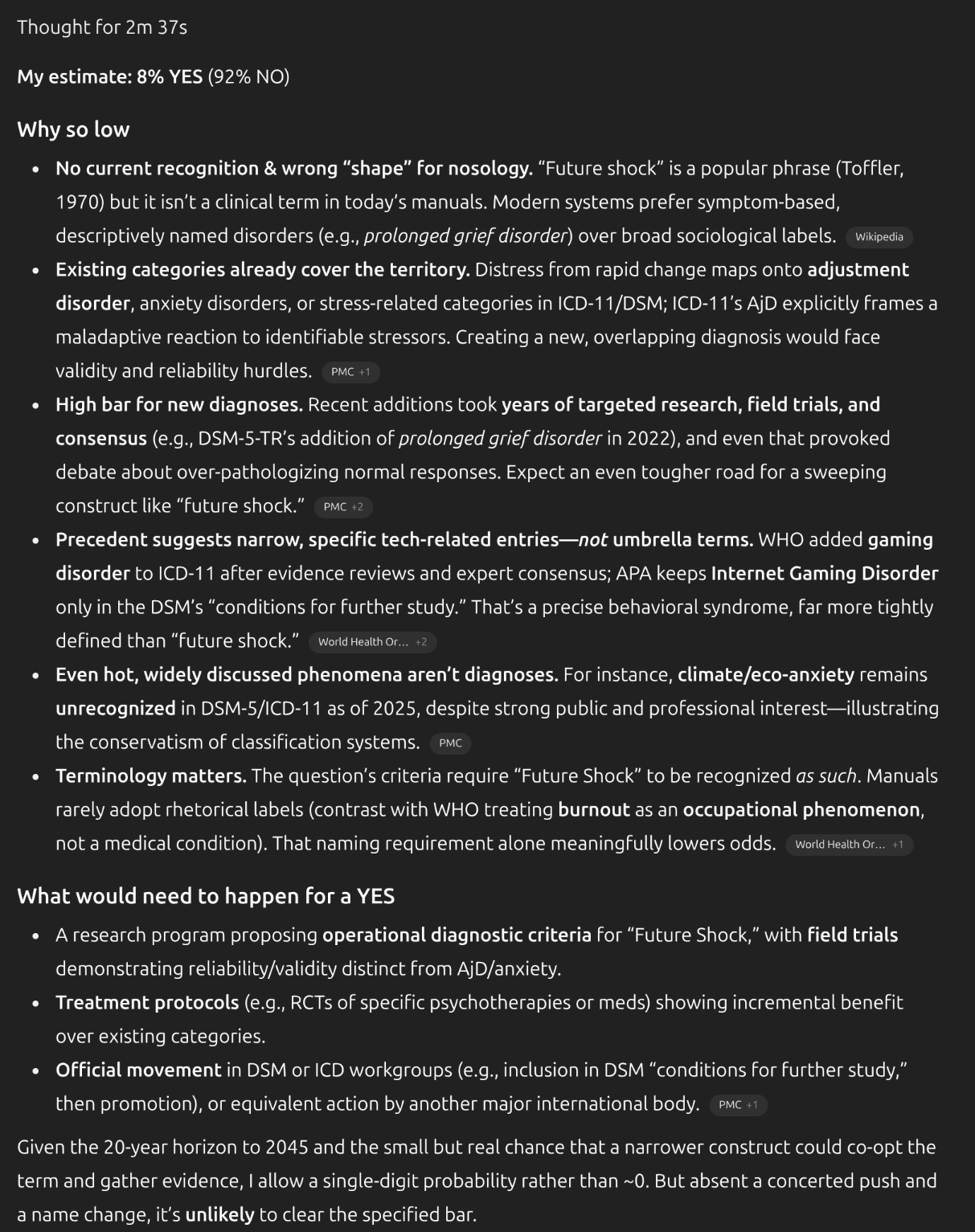Resolves as YES if Future Shock is recognised as a medical condition before January 1st 2045.
Criteria for Resolution:
Official Recognition: Future Shock must be formally recognized as a medical condition by at least one of the following major medical or psychiatric associations:
World Health Organization (WHO) in the International Classification of Diseases (ICD)
American Psychiatric Association (APA) in the Diagnostic and Statistical Manual of Mental Disorders (DSM)
Other equivalent international medical or psychiatric bodies.
Definition and Diagnostic Criteria: There must be a clear definition and set of diagnostic criteria for Future Shock, similar to other recognized mental health conditions. This information must be published in official documents or peer-reviewed medical journals.
Professional Consensus: There should be a general consensus within the medical and psychiatric community about the existence and diagnostic criteria of Future Shock, indicated by publications in reputable medical journals, official statements from medical bodies, and inclusion in medical textbooks.
Treatment Protocols: Established treatment protocols and guidelines for managing Future Shock should be available, supported by clinical research and trials.
Background: The term "Future Shock" was coined by the futurist Alvin Toffler in his 1970 book "Future Shock," where he described it as a psychological state of individuals and entire societies, experiencing "too much change in too short a period of time." It reflects a phenomenon where the acceleration of technological and social change can lead to feelings of overwhelm, anxiety, and disorientation.
As we advance further into the 21st century, the rapid pace of technological development, coupled with profound societal changes, has reignited discussions about the potential mental health impacts of such rapid change. Researchers and mental health professionals are increasingly exploring the psychological effects of continuous and rapid innovation, potentially leading to the recognition of Future Shock as a distinct medical condition.
References:
American Psychiatric Association (APA)
Alvin Toffler’s "Future Shock"
